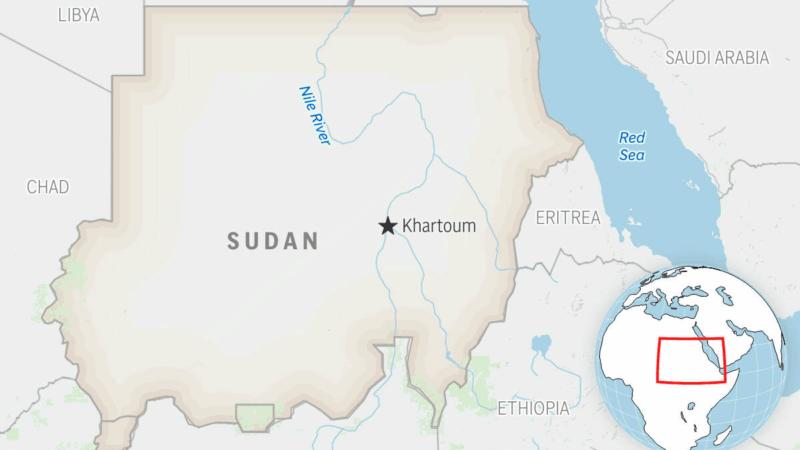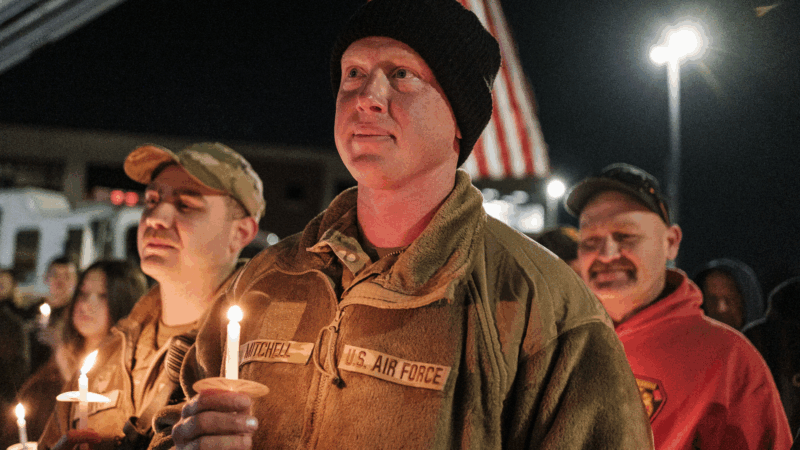How NPR covers itself when it’s in the news
When NPR is in the news, as it was this week, our journalists aim to cover what’s happening the same way they cover any other organization. To do that, the NPR newsroom follows a process aimed at ensuring only a small number of employees, none of whom are directly involved in the news event, works on the coverage.
This process, which the newsroom refers to as “the protocol,” was used, for example, in 2024 after a news site called The Free Press published an essay by then-NPR editor Uri Berliner. Titled “I’ve Been at NPR for 25 Years. Here’s How We Lost America’s Trust,” it alleged that NPR had developed a liberal bias that was affecting its ability to cover the news fairly. NPR’s media correspondent and his editors decided it was important to cover, and wrote several stories for NPR’s website and its radio shows.
In cases like that, a small group of NPR journalists is tasked with covering the story and isolate themselves from the rest of the newsroom. That group is typically made up of media correspondent David Folkenflik, his editor, and one senior news manager, usually a managing editor. The coverage is planned and executed within that small group. Decisions about what stories are written or produced are always driven by what’s the most important news to deliver to NPR’s audiences, according to Gerry Holmes, one of NPR’s managing editors, often involved in such coverage, including on Wednesday.
If needed, other NPR journalists might be tapped to help out, depending on the resources required — for example, a producer to pull together audio needed for a radio piece. And the reporter can reach out to other NPR employees to serve as sources or to NPR’s media relations team for a comment from the company. But no one from newsroom or corporate leadership is involved with the writing or production of NPR stories about NPR.
“We seek to approach the story about us without any influence from any part of the organization,” Holmes said, “with the ability to reach out for comment to anyone we need to, within or outside of NPR.” He said that keeping the team small and firewalled helps ensure decisions are made “purely through the prism of journalism.”
NPR signals its use of the “protocol” to its audiences by including a note at the bottom of the story that says which of its journalists wrote and edited the story. That note also says: “Under NPR’s protocol for reporting on itself, no NPR corporate official or news executive reviewed this story before it was posted publicly.”
Meghan Ashford-Grooms is a Supervising Editor for Standards and Practices in NPR’s newsroom.
‘The Abandons’ is a sudsy soap opera dressed up in spurs and a cowboy hat
On the surface it's a gorgeous, hardscrabble Western, awash in stark landscapes, grubby faces, bar fights and banditry. But scratch away the grime, and you expose the pure, glitzy soap opera beneath.
Sudanese paramilitary drone attack kills 50, including 33 children, doctor group says
Thursday's attack is the latest in the fighting between the paramilitary group, the Rapid Support Forces, also known as the RSF, and the Sudanese military, who have been at war for over two years.
Russia unleashes drone and missile attack on Ukraine as diplomatic talks continue
Russia unleashed a major missile and drone barrage on Ukraine overnight into Saturday, after U.S. and Ukrainian officials said they'll meet on Saturday for talks aimed at ending the war.
West Virginians question National Guard deployments after attack on 2 of their own
Army Specialist Sarah Beckstrom was fatally shot in Washington, D.C., while Air Force Staff Sergeant Andrew Wolfe was seriously wounded. Trump says the deployments are necessary to fight crime, but others disagree.
Takeaways from the latest special election and what it means for control of the House
There was yet another sign this week of a potential 2026 wave that could hand control of the House of Representatives to Democrats.
Trump official signals potential rollback of changes to census racial categories
Trump officials are reviewing changes to racial and ethnic categories that the Biden administration approved for the 2030 census and other federal government forms, a White House agency official says.






